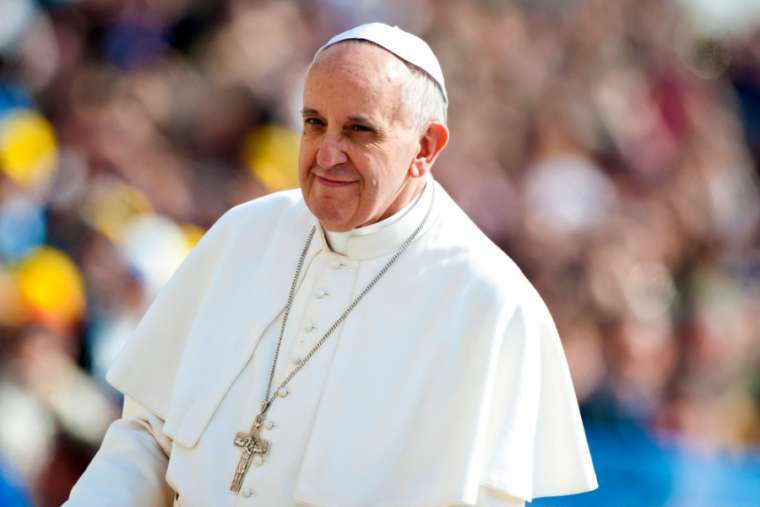Pope Francis, pictured April 17, 2013. Credit: Mazur/catholicnews.org.uk.
Pope Francis warned today against the temptation to ignore the suffering of others during the coronavirus pandemic and said that things will get better in the new year to the extent to which the needs of the weakest and most disadvantaged are prioritized.
“We don’t know what 2021 has in store for us, but what each of us and all of us together can do is to commit ourselves a little more to take care of each other and of creation, our common home,” the pope said in his Angelus address this morning.
In the live video broadcast from the Apostolic Palace, the pope said that “things will get better to the extent that, with God’s help, we work together for the common good, putting the weakest and most disadvantaged at the centre.”
The pope said that there is a temptation to take care only of one’s own interests during the pandemic and “to live hedonistically, that is, seeking only to satisfy our own pleasure.”
He added: “I read something in the newspapers that saddened me greatly: in one country, I forget which, more than 40 aircraft left, to enable people to flee from the lockdown and to enjoy the holidays.”
“But those people, good people, did they not think about those who stayed at home, about the economic problems faced by many people who have been floored by the lockdown, about the sick? They thought only about taking a holiday for their own pleasure. This pained me greatly.”
Pope Francis addressed a special greeting to “those who begin the new year with greater difficulties,” mentioning the sick and the unemployed.
“I like to think that when the Lord prays to the Father for us, He does not merely speak: He makes Him see the wounds of the flesh, He makes Him see the wounds He suffered for us,” he said.
“This is Jesus: with His flesh, He is the intercessor, he wanted to bear even the signs of suffering.”
In a reflection on the first chapter of the Gospel of John, Pope Francis said that God became man to love us in our human frailty.
“Dear brother, dear sister, God became flesh to tell us, to tell you that He loves us … in our frailty, in your frailty; right there, where we are most ashamed, where you are most ashamed. This is bold,” he said.
“Indeed, the Gospel says that He came to dwell among us. He did not come to visit us, and then leave; He came to dwell with us, to stay with us. What, then, does He desire from us? He desires a great intimacy. He wants us to share with Him our joys and sufferings, desires and fears, hopes and sorrows, people and situations. Let us do this, with confidence: let us open our hearts to Him, let us tell Him everything.”
Pope Francis encouraged everyone to pause in silence before the nativity to “savour the tenderness of God who became near, who became flesh.”
The pope also expressed his closeness to families with young children and to those who are expecting, adding “a birth is always a promise of hope.”
“May the Holy Mother of God, in whom the Word became flesh, help us to welcome Jesus, who knocks on the door of our hearts to dwell with us,” Pope Francis said.
“Without fear, let us invite Him among us, into our homes, into our families. And also … let us invite Him into our frailties. Let us invite Him, so that He may see our wounds. He will come and life will change.”
Source: CNA

